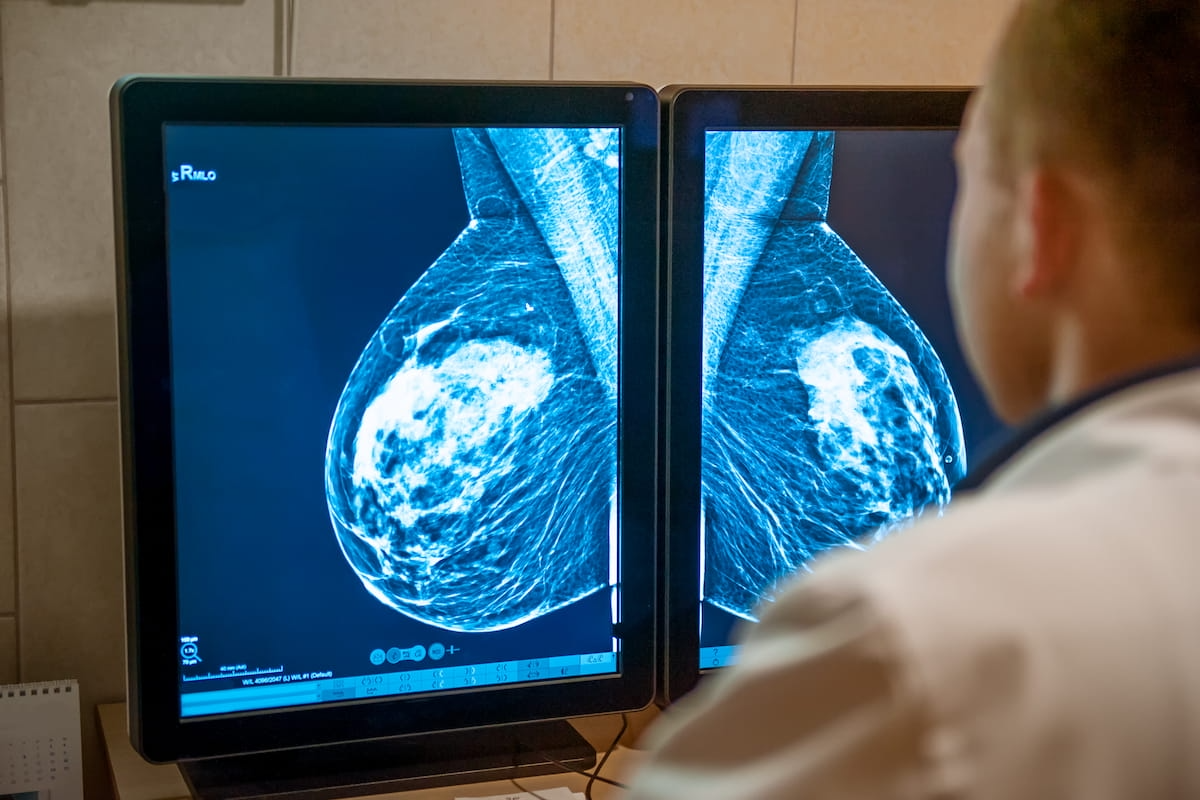Fitness
Can Mammography-Based AI Enhance the Detection of Contralateral Breast Cancer?

Adjunctive artificial intelligence (AI) may elevate the detection of contralateral breast cancer (CBC) beyond the use of surveillance mammography, according to a study of over 900 patients recently presented at the 2024 American Society of Clinical Oncology (ASCO) Annual Meeting.
For the retrospective study, researchers reviewed data from post-op serial mammography exams for 939 patients treated for primary breast cancer in order to assess the capability of a mammography-based AI software (Lunit INSIGHT MMG, Lunit) for diagnosing CBC. Noting that the AI software provides abnormality scoring between 0 to 100, the study authors said scores above 10 represented the threshold for CBC detection.
According to the study, 460 patients developed CBC and researchers found the median AI abnormality score (22.9) was significantly higher in this patient population in comparison to those without CBC (0.4).
For the detection of contralateral breast cancer, new research demonstrated that an emerging AI software had comparable sensitivity (59.6 percent) to reviewing radiologists (56.5 percent) and diagnosed 59 cases more than a year prior to confirmed diagnosis. (Photo courtesy of Adobe Stock.)
For CBC cases, the study authors said the AI software demonstrated comparable sensitivity (59.6 percent) to reviewing radiologists (56.5 percent). The researchers noted the AI software had an area under the receiver operating characteristic curve (AUROC) of 83.6 percent and a 91 percent specificity rate for CBC.
The study authors also emphasized the capability of the AI software with early detection of CBC, pointing out 84 cases detected at least six months prior to conformed diagnosis. An additional 59 cases were revealed through AI interpretation more than a year prior to confirmed CBC diagnosis, according to the researchers.
“The application of AI in mammography screening has demonstrated significant potential for the early detection of CBC, identifying cases up to a year before formal diagnosis. This underscores the value of integrating AI tools in mammography to enhance early detection rates of CBC among primary breast cancer patients,” noted lead study author Ji-Jung Jung, M.D., who is affiliated with the Department of Surgery at the Seoul National University Hospital in Seoul, South Korea, and colleagues.
The researchers suggested the use of adjunctive AI may provide a viable complement for detecting CBC in light of the challenges with surveillance mammography.
“ … The sensitivity of surveillance mammography (for CBC) exhibits considerable variation, ranging between 45% and 90%, with notably lower detection rates in younger individuals and those with dense breast tissue,” pointed out Jung and colleagues.
Reference
- Jung JJ, Kang E, Byeon J, et al. Detection of contralateral breast cancer in patients with primary breast cancer through AI-assisted mammography. Presented at the 2024 American Society of Clinical Oncology (ASCO) Annual Meeting, May 31-June 4, 2024, Chicago. Available at: https://meetings.asco.org/abstracts-presentations/ . Accessed June 4, 2024.










